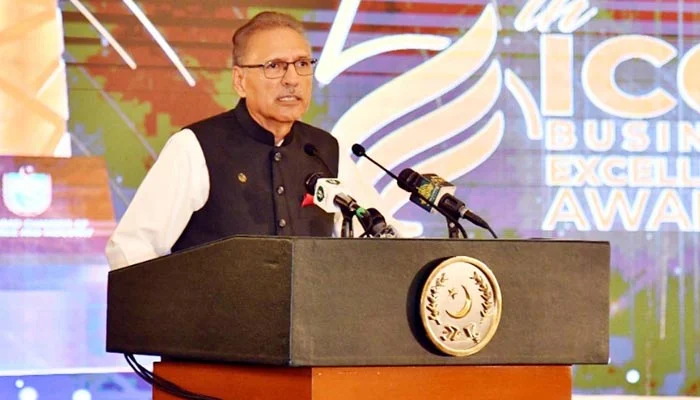ISLAMABAD, Aug 15 (ABC): President Dr Arif Alvi on Monday underlined the need to adopt international best practices and modern technological tools by the public sector audit and accounts departments for better financial control, ensuring efficient and transparent use of public funds in the best interest of the people of Pakistan.
The president made these remarks while talking to the under-training officers of the 49th Specialized Training Programme (STP) of the Pakistan Audit and Accounts Service (PAAS), at Aiwan-e-Sadr.
Auditor General of Pakistan (AGP), Muhammad Ajmal Gondal, Additional AGP, Syed Sajjad Haider, Rector PAAS Academy, Namana Gulrukh Fareed, and senior officials of the government attended the meeting, President Secretariat Press Wing said in a press release.
Talking to the newly-inducted civil servants, the president advised them to keep on updating their knowledge and professional and communication skills and technical expertise and to discharge their official responsibilities with humility, justice and ready accessibility to the common man.
The president said that technological developments were happening at an exponential pace whereas the decision-makers and civil servants were still making decisions in a linear mode.
“We need to adopt critical technologies like block chain, and Virtual and Augmented Reality in the office processes and procedures, besides taking the right decisions at right time and serving the nation with the passion to remain current and relevant in the era of technological breakthroughs happening at breakneck speed”, he said.
He further said that automating government processes and shifting to cashless transactions could help in improved tracking of government expenditures and better policing of its finances in the public interest.
The president said that he had been advocating the adoption of online, distance learning and hybrid means of learning and working from home for a long time, but the COVID-19 lockdown had proved as a catalyst to change thinking patterns and work attitudes toward this effective and fast-paced means of imparting education and knowledge.
He said that a large educated and skilled population could be an asset and a source of wealth and prosperity for the nation.
In reply to a question about the low participation of women in the workforce, the president regretted the fact that due to local traditions and cultural practices, women were deprived of their due rights.
He said that although laws had been enacted to give property rights to women, however, in some parts of the country women were kept marginalized due to highly entrenched social and cultural norms.
He said that Pakistan’s dismal standing in socio-economic indicators could only be improved by substantially mainstreaming women that comprised almost half of the population.
He called upon the civil society, media, women parliamentarians and women’s organizations to play their proactive role in ensuring women’s inclusion in the workforce for their socio-economic empowerment.
“Media should portray women as financially and economically empowered persons to serve as role models and help in raising awareness regarding the pressing need for women empowerment in the country”, he added.
The president also called for the need of imparting fast-paced quality education to youth and women and equip them with optimized skills through conventional and online and hybrid modes of learning.

